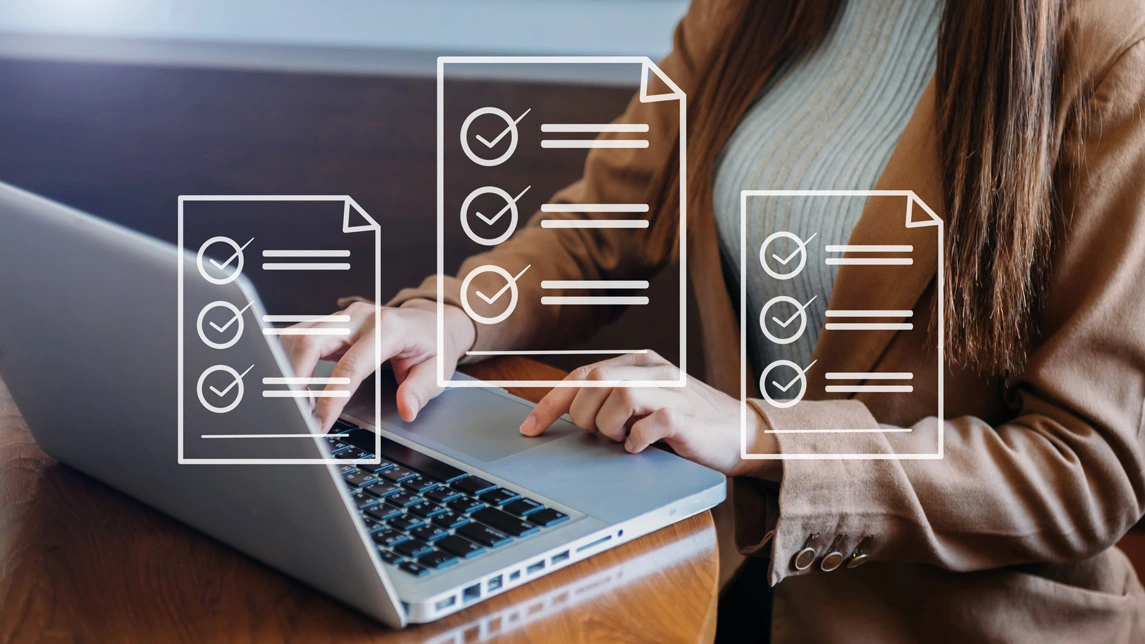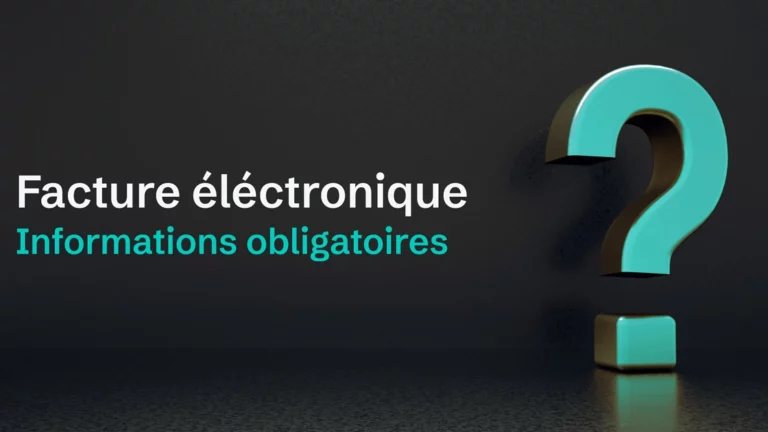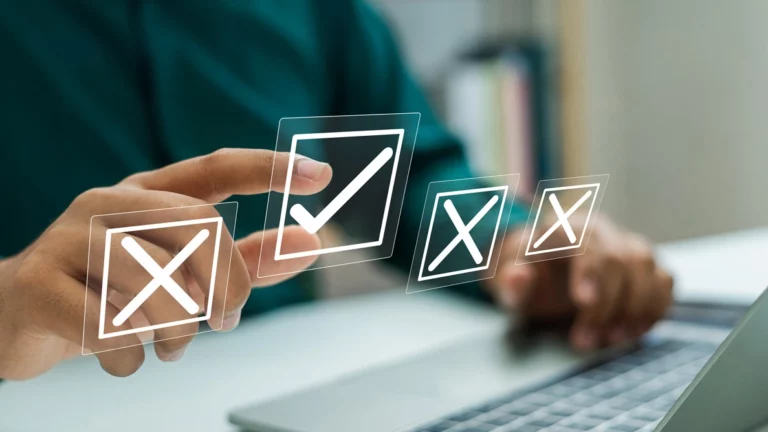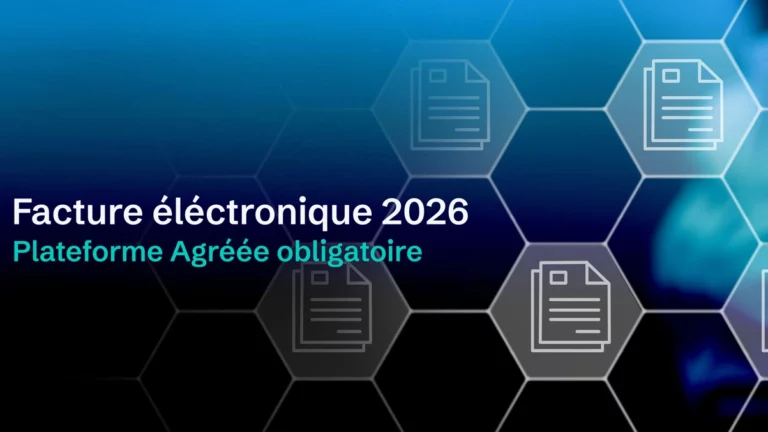Introduction to paperless invoicing
The dematerialisation of invoices is profoundly transforming the way companies manage their invoicing. It involves replacing paper invoices with electronic invoices, i.e. digital documents produced, transmitted and archived in electronic form. This development concerns both customer invoices and dematerialised supplier invoices.
Dematerialisation is more than just scanning a document: it involves automated, structured and compliant data management, with formats such as digital invoices, dematerialised invoicesande-invoices. Thanks to solutions like Azopio, businesses can simplify their processes, reduce errors and comply with the new legal obligations associated with mandatory electronic invoicing.
Advantages of electronic invoicing
There are many advantages to adopting electronic invoicing. Firstly, from an economic point of view: automation reduces the costs associated with printing, sending and archiving. Secondly, from an operational point of view: processing dematerialised invoices is faster, with a significant reduction in human error. Digital invoices can be accessed at any time, and tracking them is simplified. This improves cash management and collaboration with partners. By using an electronic invoicing system, you can centralise your documents and improve your accounting management.
Finally, digital invoicing is part of a CSR approach, limiting the use of paper and reducing the carbon footprint associated with manual processes.
Process for setting up electronic invoicing
Implementing paperless invoicing within a company requires a clear methodology and appropriate tools. Here are the key stages:
- Start by analysing your current practices: volume of supplier/customer invoices, processing times, etc. This step will enable you to identify areas for improvement and priorities.
- Choosing a reliable and appropriate dematerialisation solution: this is where Azopio comes in, offering a complete solution for automating the management of your electronic invoices. Thanks to its intelligent document collection, recognition and classification system, Azopio can process both customer and supplier invoices.
- Configure your processes: define validation workflows, file formats (PDF, Factur-X, XML, etc.), users and authorisations. Azopio lets you customise these workflows to suit the size and organisation of your business.
- Train your teams : the success of the transition depends on staff buy-in and support in using the new tools. Azopio’s intuitive interface makes this easier.
- Monitor and optimise your processes: measure efficiency, correct bottlenecks, and keep abreast of regulatory developments such as the forthcoming mandatory e-invoicing.
With Azopio, dematerialising your invoices is simple, secure and compliant, while saving you time and increasing productivity immediately.
Security and legal compliance of electronic invoices
Electronic invoicing is governed by strict rules designed to guarantee the integrity, authenticity and legibility of each document. A mandatory electronic invoice must comply with three fundamental principles:
- Authenticate the sender,
- Preserve data integrity,
- Guarantee immediate legibility.
The use of a structured format such as the Factur-X or EDI (Electronic Data Interchange) invoice is strongly recommended. In addition, archiving must meet specific legal requirements (retention period, traceability, access security, etc.).
Azopio ensures full compliance with French and European legislation, while guaranteeing data security via encryption systems and personalised access.
Why choose Azopio to manage your electronic invoices?
The transition to mandatory electronic invoicing is not something to be taken lightly. Azopio supports you every step of the way with :
- An intuitive platform designed to simplify the processing of your electronic invoices.
- Seamless integration with your accounting tools
- Secure archiving that complies with tax standards and the RGPD.
- Save considerable time by automating the collection, sorting and dispatch of documents.
Whether you are a VSE, an SME, an association, a franchise or an accountancy firm, Azopio can help you anticipate the reform of electronic invoicing.
and structure your document management.
In a nutshell:
Intelligent automation of invoice processing
Thanks to Azopio’sintelligent extraction technology, the key data on your invoices (amounts, VAT, suppliers, dates, etc.) is automatically read and integrated into your accounting tools. No more tedious manual data entry!
A compliant, secure solution
Azopio complies with French and European tax standards for electronic invoicing, including future obligations linked to the 2026 reform. Your documents are stored securely, in compliance with the RGPD, with full traceability.
Seamless integration into your ecosystem
Compatible with the main accounting and management software packages (Sage, Cegid, ACD, etc.), Azopio integrates seamlessly into your working environment.
Saving time for you and your accountant
By automating the collection, filing and dispatch of invoices, Azopio simplifies collaboration with your accounting firm and saves you valuable time on a day-to-day basis.
Would you like to switch to electronic invoicing with complete peace of mind?
Rely on Azopio, your partner for modern, compliant and efficient accounting management. Contact us today for a personalised demonstration
Further information: frequently asked questions about electronic invoicing
The transition to mandatory electronic invoicing raises many technical, legal and practical questions. Here is a selection of the most frequently asked questions about paperless invoicing,e-invoicing and electronic invoicing.
How does mandatory electronic invoicing work in France?
Mandatory electronic invoicing will be gradually rolled out to all businesses from 2026. It requires invoices to be sent and received via approved platforms, using structured formats such as Factur-X or EDI invoices. Azopio helps companies anticipate and comply with this reform.
Who is affected by electronic invoicing?
Electronic invoicing applies to all businesses, whatever their size or sector of activity. The reform of mandatory electronic invoicing will be phased in between 2026 and 2027.
Does electronic invoicing also apply to small businesses?
Yes, the dematerialisation of supplier and customer invoices concerns all businesses, including very small businesses and micro-entrepreneurs. The law provides for the widespread use of electronic invoicing, whatever the sector or size of the company.
Can an existing PDF invoice be dematerialised?
A simple PDF is not enough to be considered a compliant electronic invoice. However, with a tool like Azopio, you can automate the reading of your existing PDF invoices, extract the data from them and integrate them into a compliant electronic invoicing process.
Is the e-bill legally valid?
The dematerialisation of invoices, or e-invoicing, is a process whereby traditional paper invoices are converted into electronic format. This transformation not only complies with legal requirements, but must also guarantee authenticity of origin, integrity of content and legibility. An e-invoice must be kept for the legal period, generally between 6 and 10 years, so that it is available in the event of a tax audit.
#e-invoice, #digital invoice, #e-invoices, #dematerialized invoice, #e-invoices, #e-invoicing, #digital invoice, #invoice x obligation, #dematerialisation facture




